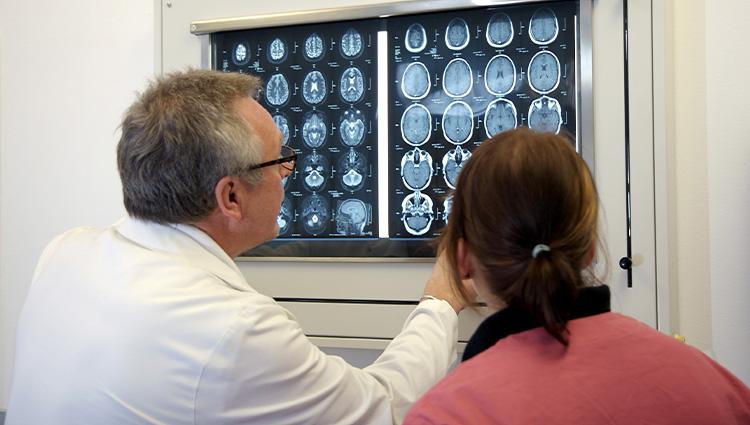
Epilepsy is a neurological condition characterized by recurrent and unprovoked seizures. While seizures themselves can be frightening, it is important to know that epilepsy is treatable. With proper management, most people with epilepsy can live normal, fulfilling lives.
What are seizures?
Seizures occur due to abnormal electrical activity in the brain. This can manifest in various ways, from the well-known generalized tonic-clonic (grand mal) seizure involving falling, jerking and loss of consciousness, to staring spells, lip smacking with impaired awareness or a sense of déjà vu. Other seizures may involve just uncontrolled jerking of one part of the body or whole body or tingling and numbness of one limb or one side of the body without any alteration of consciousness.
Epilepsy vs. seizures
It’s important to distinguish between a single seizure and epilepsy. Anyone can experience a seizure due to factors like illness, sleep deprivation, alcohol withdrawal, medication side effects and brain trauma. The difference is that epilepsy is not a single event but rather a chronic condition, characterized by recurrent and unprovoked seizures. About 10% of the population may experience a seizure at some point, but only about 1% develop epilepsy. The challenge lies in distinguishing between provoked seizures, caused by specific triggers, and unprovoked seizures, which may suggest a diagnosis of epilepsy.
Triggers and warning signs
Certain factors can increase the risk of seizures in people with epilepsy. These include sleep deprivation, alcohol use and missing medication doses. Some people experience warning signs, like unusual smells, tastes or a rising sensation in the stomach, before a seizure. However, these vary from person to person.
Impact of epilepsy
Epilepsy can profoundly impact daily life. The risk of injury during seizures, the fear of embarrassment and medication side effects can affect relationships, work and overall well-being. Additionally, depression and anxiety are common conditions seen in people with epilepsy.
Management and treatment
The first step in managing epilepsy is consulting a neurologist, preferably an epileptologist (neurologist specializing in epilepsy). Diagnosis involves tests like EEG (electroencephalogram) to measure brain waves and MRI to identify any structural abnormalities.
Medication
For people with epilepsy, managing seizures becomes a paramount concern affecting daily life. Medication is the mainstay of epilepsy treatment, effective for about 70% of patients in controlling seizures. There are a multitude of medications currently available to treat epilepsy however response to treatment can be predicted after trying just one or two seizure medications. Patients who do not achieve seizure control with the first two seizure medications (because of lack of efficacy as opposed to side effects) are unlikely to achieve seizure freedom with a third or a combination of seizure medications. These patients should consider non-pharmacologic treatment options.
Other treatment options
If medications fail to control seizures, other options exist:
- Ketogenic diet: This high-fat, low-carb diet can be effective, especially for children, but requires careful monitoring by a dietician due to potential side effects. For adults, a modified Atkins diet could be implemented.
- Epilepsy surgery: This can be curative for some patients with well-defined seizure origin areas in the brain which can be removed safely without causing any significant loss of function.
- Stimulation therapies: Techniques such as vagus nerve stimulation, responsive neurostimulation and deep brain stimulation provide alternative approaches to seizure management. These methods involve the use of electrical impulses to modulate brain activity and reduce seizure frequency.
Lifestyle changes
Getting enough sleep, managing stress and avoiding alcohol and recreational drugs are crucial for managing epilepsy. Relaxation techniques like mindfulness, yoga and meditation may also help reduce seizure frequency.
Living with epilepsy
Epilepsy is a manageable condition. With proper treatment and adherence to a treatment plan, most people with epilepsy can live fulfilling lives. The goal is to achieve seizure freedom with minimal to no side effects.
At Endeavor Health, we provide comprehensive care for individuals living with epilepsy. Our multidisciplinary team offers a range of treatment options, from medication management to advanced surgical interventions and stimulation therapies. To learn more, visit us online or call 847-570-7020.